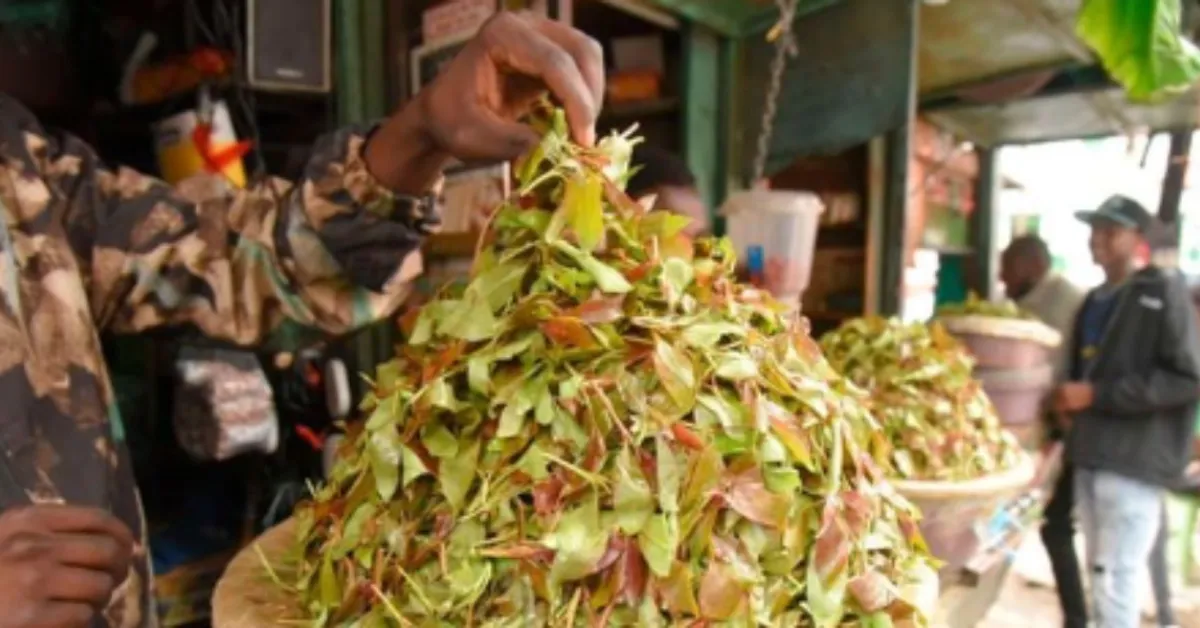Health Experts Warn of Muguka Addiction as Lawmakers Consider Ban

The Kenyan National Assembly is embroiled in a contentious debate over a bill seeking to restrict the sale and distribution of muguka, a stimulant widely consumed across the country.
The proposed legislation, spearheaded by Kilifi North Member of Parliament, aims to amend existing agricultural laws to differentiate muguka from khat and enforce stringent regulations on its trade, particularly in the coastal counties of Mombasa, Kilifi, and Taita Taveta. The proposed bill stems from increasing concerns among health professionals and policymakers regarding the adverse effects of muguka consumption. This cheaper and more potent variant of khat has gained popularity in various regions due to its stimulating properties.
However, its widespread use has sparked alarms over significant health risks, including impaired sexual potency, heightened anxiety, and potential long-term mental health disorders. The addictive nature of muguka and its consequences, especially for young people, have prompted urgent calls for regulatory action.
If enacted, the bill would amend the Crops Act to classify muguka separately from khat, thereby enabling legislative restrictions on its trade. It would prohibit the sale and distribution of muguka in the affected counties, imposing penalties on those who violate the ban.
Furthermore, the legislation proposes public awareness campaigns to educate communities about the dangers of excessive muguka consumption. The proposed ban has ignited a heated debate among stakeholders, highlighting the complex economic and social dimensions of the issue. Advocates of the bill argue that prioritising public health necessitates stronger controls to curb rising addiction rates, particularly among young adults.
They contend that restricting muguka trade will mitigate its detrimental effects on physical and mental well-being. Public health experts support the ban, citing alarming trends in addiction-related disorders and substance dependence linked to muguka. Its accessibility and affordability make it especially dangerous, with users falling into cycles of habitual consumption that negatively affect their personal and professional lives.
Opposition to the bill has been swift, particularly from traders and farmers who depend on muguka for their livelihoods. The stimulant is an economic lifeline for thousands of growers, transporters, and vendors, especially in regions where alternative income sources are scarce. Critics argue that an outright ban would devastate small businesses and lead to financial instability for many families.
Local leaders from muguka-producing regions have urged lawmakers to reconsider blanket restrictions, advocating instead for regulated trade rather than prohibition. They propose measures such as designated distribution zones, stricter sale controls, and public education on responsible consumption. Beyond its health implications, muguka consumption has been linked to broader social challenges, including increased crime rates and domestic disputes. Law enforcement officials have reported a correlation between muguka use and incidents of petty crime, substance abuse, and anti-social behavior.
The stimulant’s effects—heightened alertness and bursts of energy—are often associated with reckless decision-making and aggression, further fueling calls for tighter regulations. Community leaders and social welfare organisations argue that addressing the root causes of addiction should take precedence over strict punitive measures. They call for a multifaceted approach that includes rehabilitation programs, youth engagement initiatives, and economic diversification efforts to provide viable alternatives for those dependent on muguka trade.














Add new comment